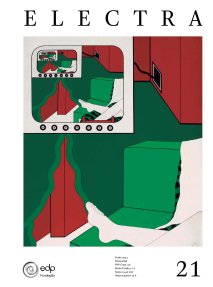Franco Berardi, better known as ‘Bifo’, is an Italian philosopher whose vast and varied writings deal above all with the workings of post-industrial capitalism and how it has been changed by the communication technologies which underlie what he has identified using the concept of ‘semiocapitalism’, a phenomenon where real life is substituted by signs, simulacra and algorithms. Philosophy, political theory, sociology and communication theory in the age of digitalisation: these are the areas in which Franco Berardi moves in his search to identify symptoms and the underlying characteristics of the world in which we live.
His links to Italian workerism, or rather, the Autonomist movement (the name preferred by Franco Berardi, and clearly less restrictive and more appropriate) and to the figures in this movement, such as Toni Negri and Mario Tronti, constitute his fundamental affiliation in the world of political theory, where ideas of work and class are central. His first book, published in 1970, was actually entitled Contro il lavoro [Against work].
This interview offers an analysis of contemporary systems of work, giving rise also to a number of considerations on the subject of leisure. Work and leisure: this dichotomy occupies a central place in the theme we explore in this issue.







Share article